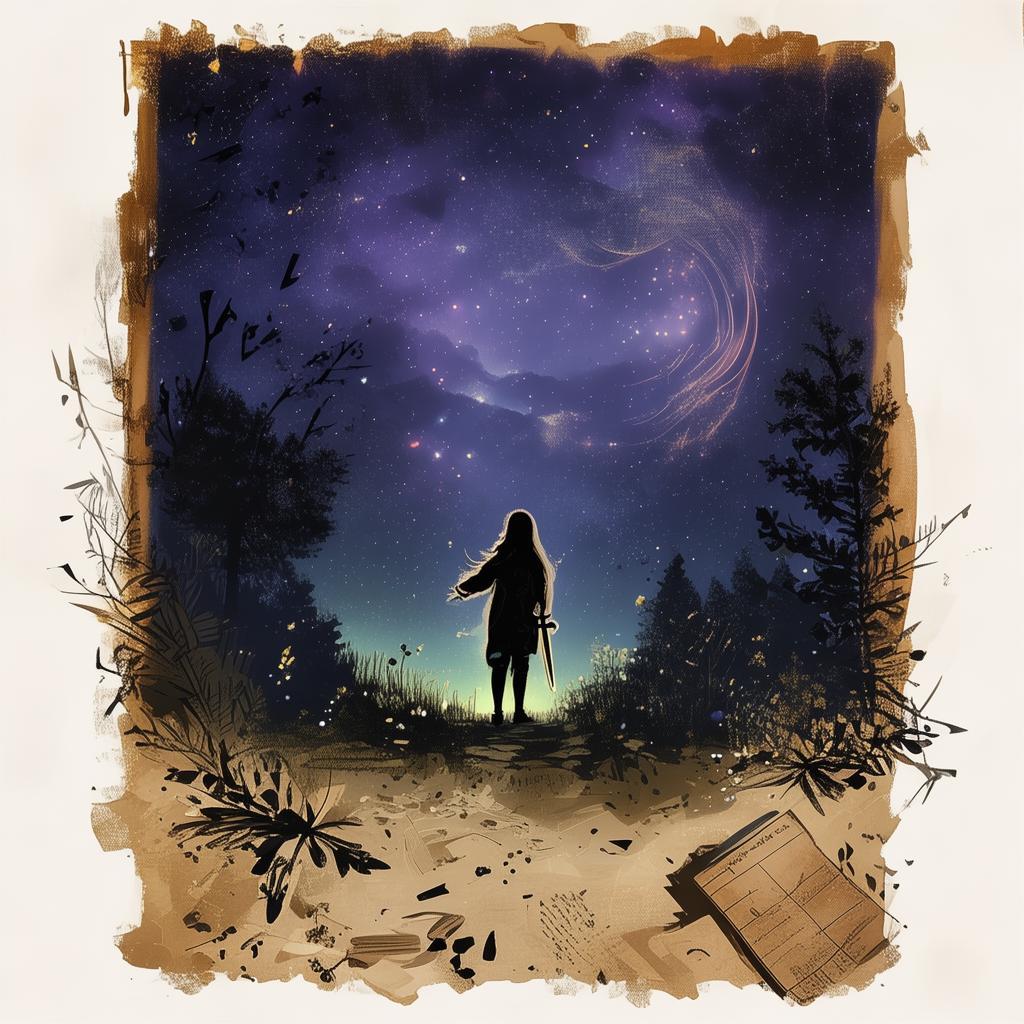The Cojum Dip Revolution: Echoes of the Future
In the year 2145, the world had changed irrevocably. The Cojum Dip Revolution had reshaped the landscape, a name that carried both the weight of a tumultuous past and the promise of a future yet to be written. The world was divided into two: the Enclaves, where the elite lived in opulence, and the Outskirts, where the masses suffered under the rule of the Cojum Dippers.
The Dippers, a shadowy organization, had taken control of the government, enforcing strict laws that banned music, considering it a tool of the mind that could incite rebellion. In this society, the only music that was allowed was a monotonous, soul-crushing drone that was piped into every building, every home, every street corner.
Amidst the oppressive silence, there lived a young woman named Liora. She had been born in the Outskirts, raised on the tales of the old world where music was a universal language, a means of expressing joy, sorrow, and the human experience. Her father, a former musician, had died in the revolution, his last words etched into her soul: "The true power lies in the melody, Liora. Find it, and you will find freedom."

Determined to honor her father's memory and challenge the Dippers' regime, Liora sought out the forbidden melodies that were said to resonate with the hearts of the Outskirts. She spent her nights in the shadows, gathering scraps of music from the ruins of the old world, piecing together fragments of melodies that spoke of hope and resistance.
One night, as she wandered through the ruins, she stumbled upon an ancient, dusty book. Its cover was worn, and its pages yellowed with age, but it was filled with the lyrics of a song she had never heard before. The lyrics were cryptic, but they spoke of a melody that could break the chains of the Dippers' control.
Intrigued and driven by her father's legacy, Liora set out to find the composer of this mysterious melody. She knew that this individual held the key to the Cojum Dip Revolution. Her journey led her to a secret underground community, a group of rebels who shared her dream of a world where music was free.
The rebels were a motley crew, each with their own reasons for fighting against the Dippers. There was Rion, a former soldier who had seen too much bloodshed; there was Zara, a hacker who could breach any security system; and there was Kael, a street performer whose voice could move mountains. Together, they formed a team that was both diverse and powerful.
As they delved deeper into their quest, Liora discovered that the melody she sought was not just a song, but a symbol. It was a call to action, a reminder of the power of the human spirit. The melody was said to be encoded in the very fabric of the Outskirts, waiting to be discovered by those who truly believed in the possibility of change.
The climax of their journey came when Liora and her team managed to retrieve the melody from an ancient temple, hidden deep within the ruins. The melody was powerful, and as Liora played it for her team, they felt its resonance in their bones. It was as if the melody was speaking to them, telling them that they were not alone.
The rebels began to spread the melody through the Outskirts, using every means at their disposal. They projected the music through hidden speakers, shared it through secret messages, and played it in the open air, defying the Dippers' orders. The people of the Outskirts, starved for music, began to gather, drawn by the melody's call.
The Dippers, realizing the threat that the melody posed to their regime, responded with brutal force. They sent their enforcers to hunt down the rebels, but the melody had already ignited a spark within the hearts of the people. They fought back, not with weapons, but with the power of their shared belief in freedom.
In the end, it was not the rebels who won the battle, but the people. The Dippers' regime crumbled under the weight of their own oppressive nature, and the Outskirts were finally free. The melody that Liora had discovered was more than just a song; it was the heartbeat of a people, a testament to their resilience and the indomitable power of the human spirit.
Liora stood on the ruins of the old temple, gazing out over the newly freed Outskirts. The melody still played in the distance, its notes mingling with the sounds of joy and celebration. She knew that her father's legacy lived on, not just in the music, but in the hearts of the people who had come together to fight for their freedom.
And so, the Cojum Dip Revolution became a legend, a tale of hope and resistance that would be told for generations to come. The melody that Liora had discovered was more than a symbol of the past; it was a beacon of the future, a reminder that the power of music could never be silenced.
✨ Original Statement ✨
All articles published on this website (including but not limited to text, images, videos, and other content) are original or authorized for reposting and are protected by relevant laws. Without the explicit written permission of this website, no individual or organization may copy, modify, repost, or use the content for commercial purposes.
If you need to quote or cooperate, please contact this site for authorization. We reserve the right to pursue legal responsibility for any unauthorized use.
Hereby declared.









